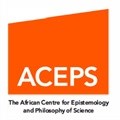These were two of the questions we sought to answer when we set up a Massive Open Online Course (MOOC), Teaching for Change. It was run jointly by Stellenbosch University in South Africa and Future-Learn, an initiative run by the Open University in the UK.
A MOOC is a course made available for free over the internet and can cater for thousands of people at once. More than 4,000 people from around the world – most from the US, UK and a variety of African countries – took part in ours.
Indigenous forms of education, created and honed in African countries by African people, have historically been criticised as somehow inferior to forms from the Western world. But a shift is underway, as we found. Education systems around the world are increasingly recognising the value of local approaches to thinking, learning and being.
Here’s what we – and the participants – learned. These lessons could be valuable to anyone who wants to centre African philosophies in a MOOC or similar course.
Kgaugelo Masweneng 19 Jun 2017 Applying African philosophies
The renowned scholar Kenneth Anthony Appiah has shown that humans’ capacities to think, reason, disagree, speak, listen and be listened to are important in constructing and reconstructing understanding.
Constructing and reconstructing an African notion of education, then, depends on borrowing from, exchanging with other cultures, and initiating thought and action that are novel. At its heart it is about respecting others’ rights universally, and about people being reflective and open about their own stories.
Here’s an example of how the philosophies of ubuntu and ukama were applied in the Teaching for Change MOOC. Not all 4,000 students were registered at once; 2,000 were registered at a time over two six-week periods that extended over two years. Throughout this between 250 and 300 students engaged online while others could be considered active “listeners”.
Students were encouraged to share their views or claims about knowledge, education, schooling, teaching and learning in their own contexts. Invariably, these views were in agreement or clashed with their classmates’. Practising ubuntu demanded that they then articulate their willingness to engage with one another in an atmosphere of openness without insulting or discrediting another’s point of view.
This encouraged people to remain dignified and respectful towards one another in any educational encounter. They were asked to listen attentively to different and even contending points of view. Afterwards, they were encouraged to offer points of view that clarified existing views.
Then, applying the theory of ukama, students were asked to see themselves in an ongoing and relational conversation with one another without prematurely judging another’s point of view as irrelevant. They considered others’ views without rushing to judgement.
Students found these approaches useful. They were taught to not only share their views and stories (and stories, of course, play a large role on a continent with a rich oral history), but to offer reasons for these views.
Learning to justify stories is an important part of African philosophy. Kwase Wiredu, N'Dri Assie-Lumumba and Kwame Gyekye are three notable theorists who consider storytelling in relation to justification through reasons being as significant to what it means to engage in education. A famous text on African philosophy edited by Wiredu provides textual evidence for the importance of storytelling in cultivating ubuntu and ukama.
Narrating stories or views in this setting followed a communal approach: one told a story, and another listened to it. Then the “story” was retold through engaging with others’ ideas and contributions. So students didn’t just internalise understandings of African education as if nothing should be questioned. Instead they made sense of one another’s stories and in this way developed more informed understandings of the stories being told.
Participants engaged collectively, drew on their own existing thoughts about African education and learned from others. This approach to learning is not in one direction as if teachers have the sole authority to give an account of reasons. Students also have a voice as they assume responsibility for their claims. Students’ voices are at the fulcrum of democratic education which is necessary for assisting them in critically reflecting on their own social, cultural and economic contexts.
Thoughtful inquiry
Our task as university teachers on this MOOC was to find the opportunity to connect students to real problems plaguing the African continent. Examples of such problems are military dictatorships, famine and hunger, food insecurity, and societal violence. They were given space to collectively find ways to address and perhaps even resolve these problems.
The students rose to the task, recognising the need for thoughtful inquiry if Africa’s many injustices are to be eradicated. They used the MOOC’s online discussion forums to express their ideas – and most clearly embraced the idea of an African approach to education.
 This scholarly effort to bring about societal and transformative change through collaborative teaching and learning is bearing fruit. We have already been approached to run the MOOC again and are working on an amended version. And, thanks to the MOOC, we’ve now published a book called Rupturing African Philosophy on Teaching and Learning: Ubuntu Justice and Education with Palgrave-MacMillan in New York. It will appear in July 2018.
This scholarly effort to bring about societal and transformative change through collaborative teaching and learning is bearing fruit. We have already been approached to run the MOOC again and are working on an amended version. And, thanks to the MOOC, we’ve now published a book called Rupturing African Philosophy on Teaching and Learning: Ubuntu Justice and Education with Palgrave-MacMillan in New York. It will appear in July 2018.
This article was originally published on The Conversation. Read the original article.





































